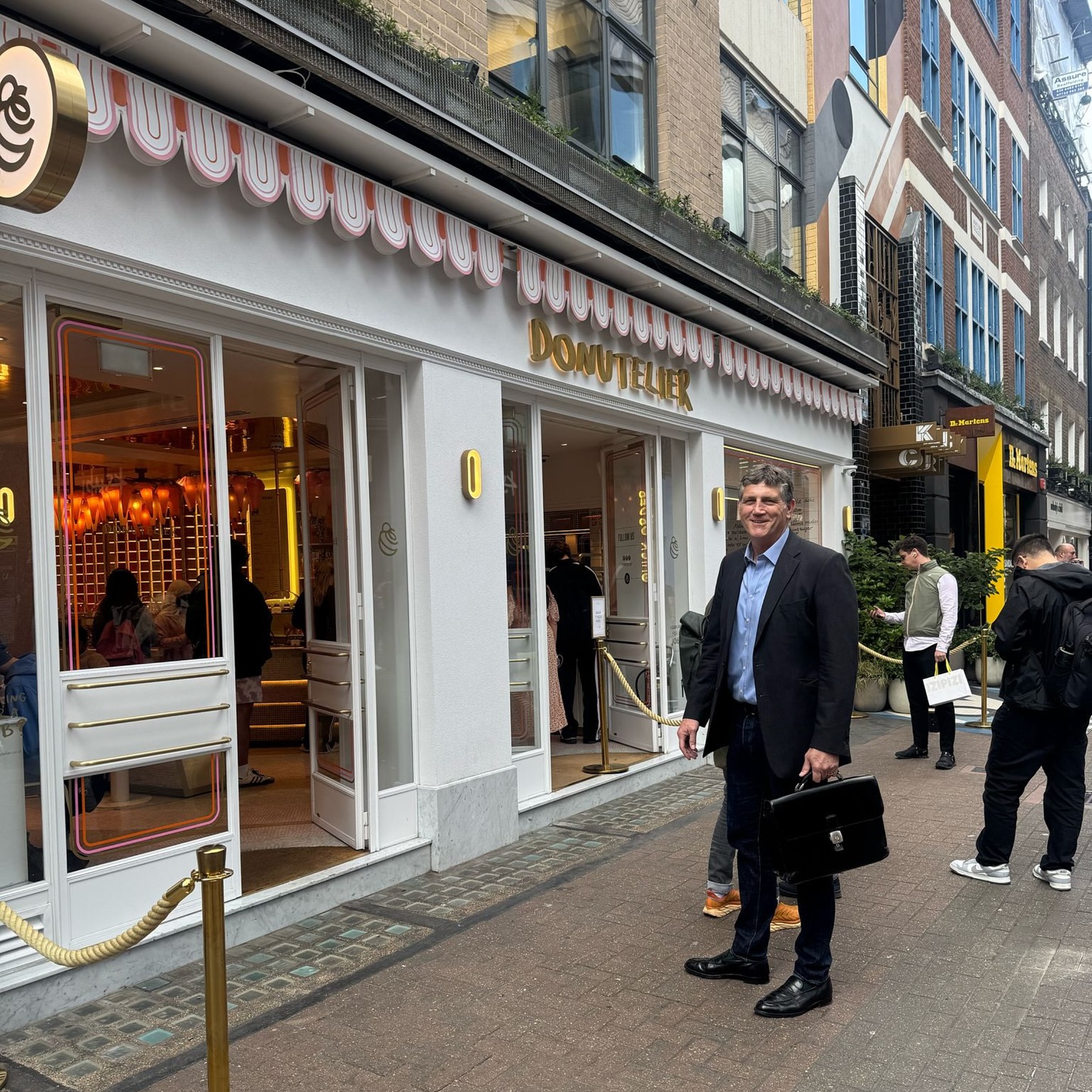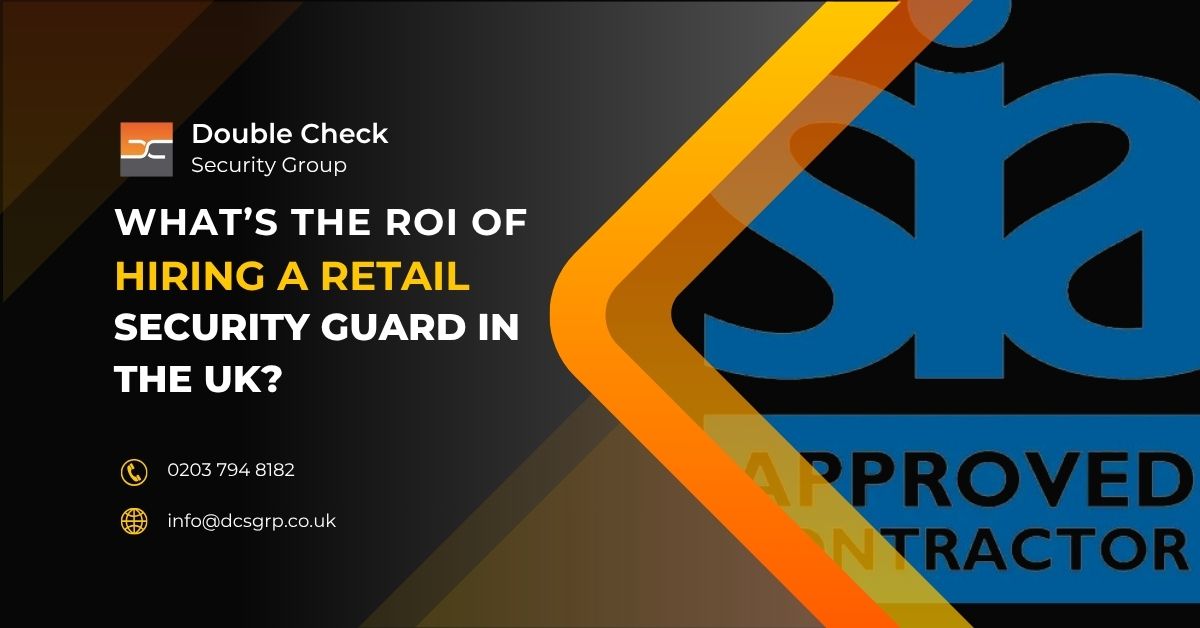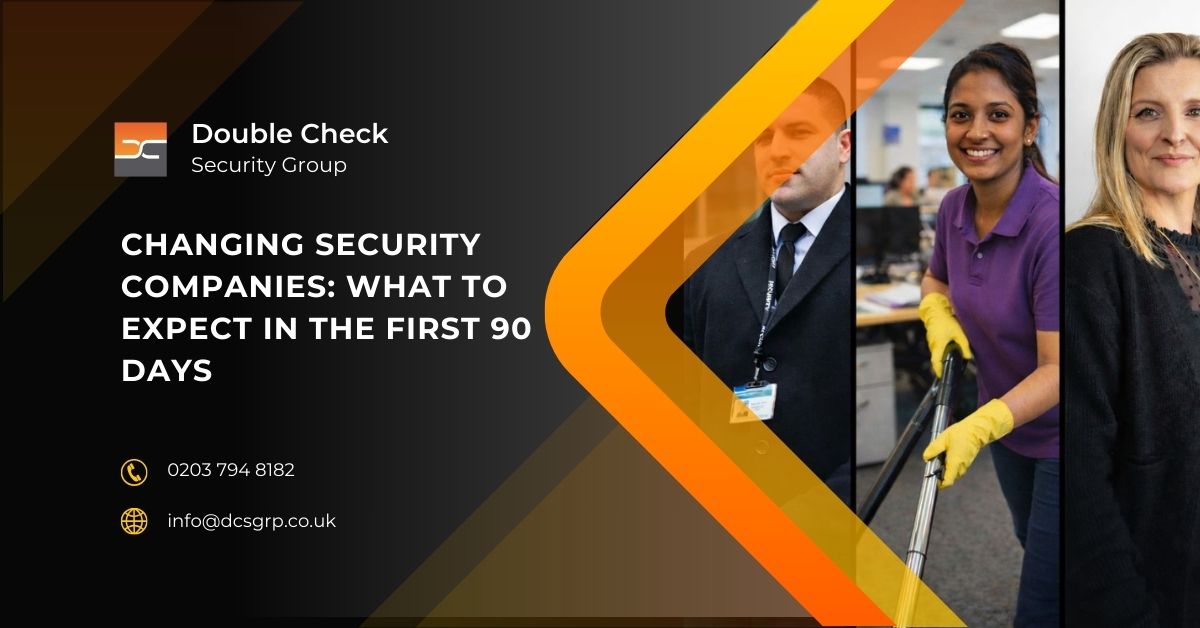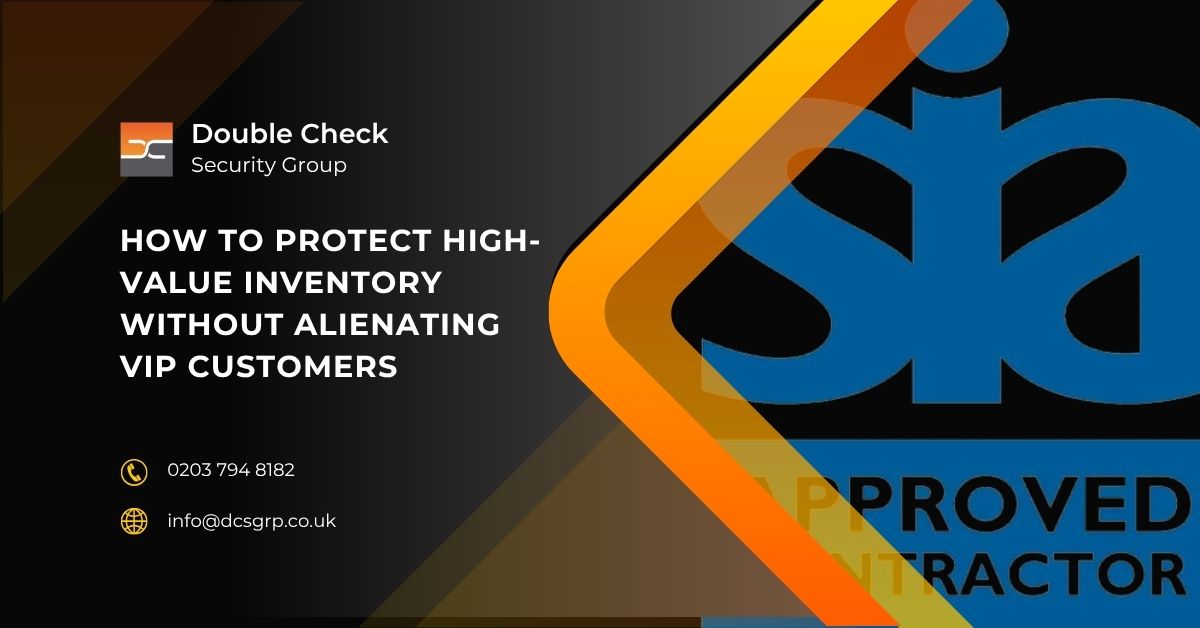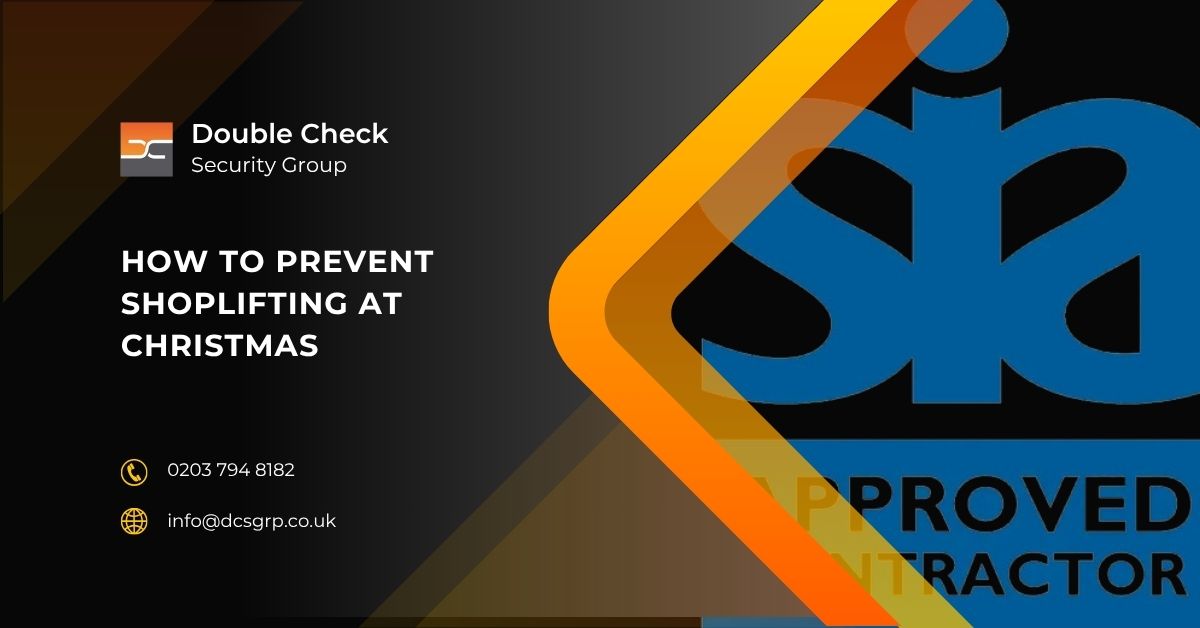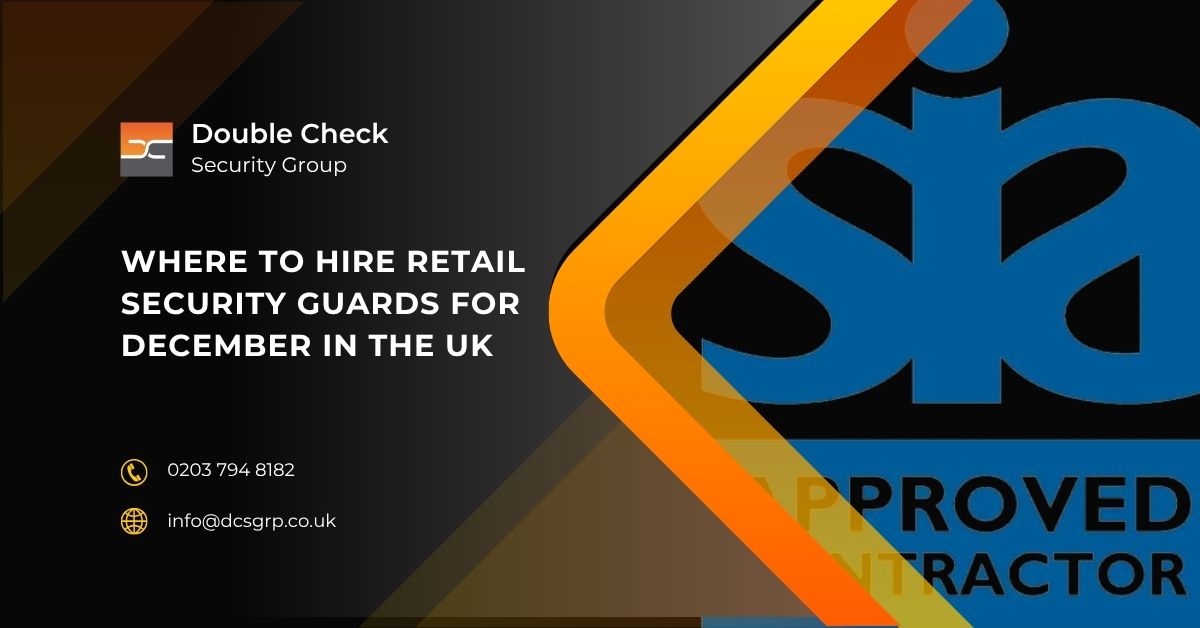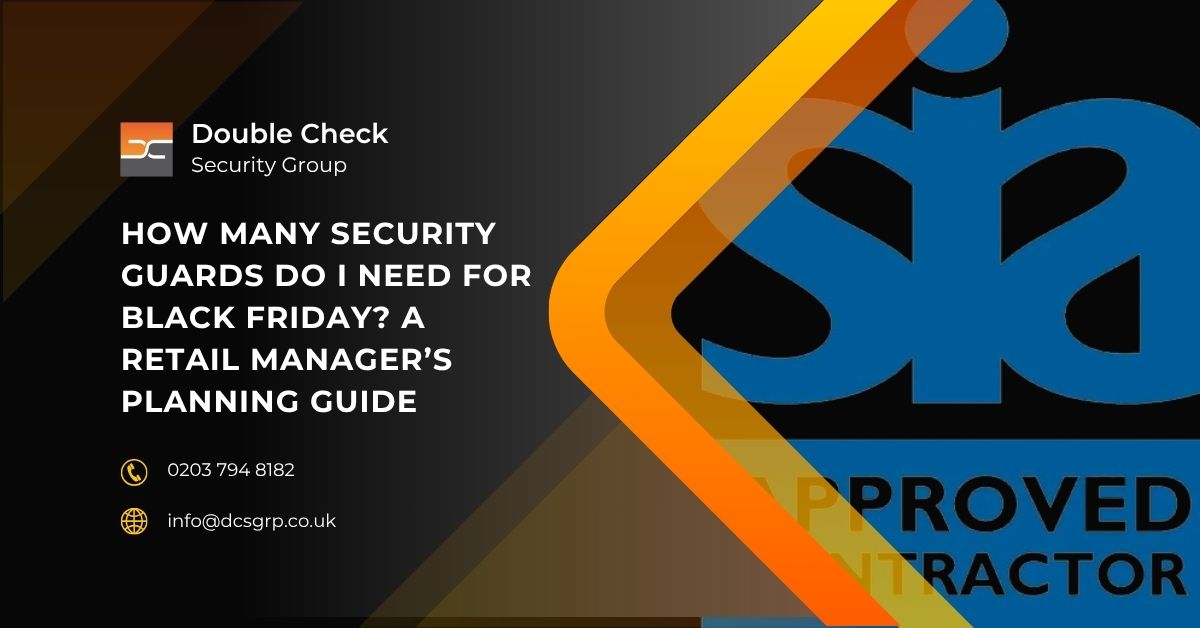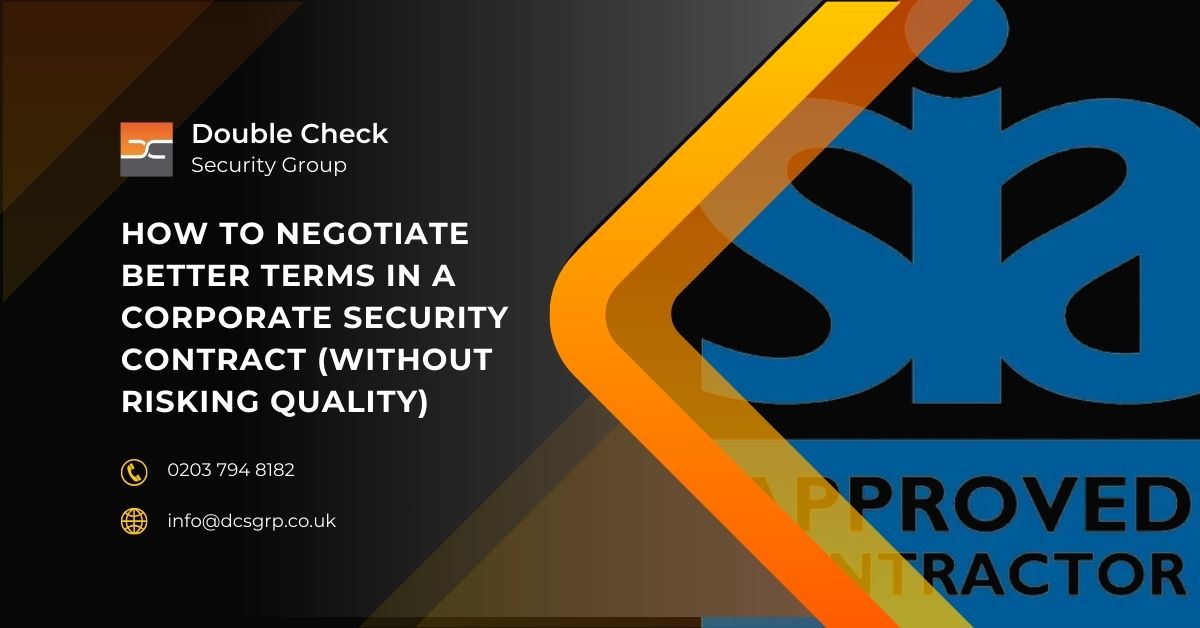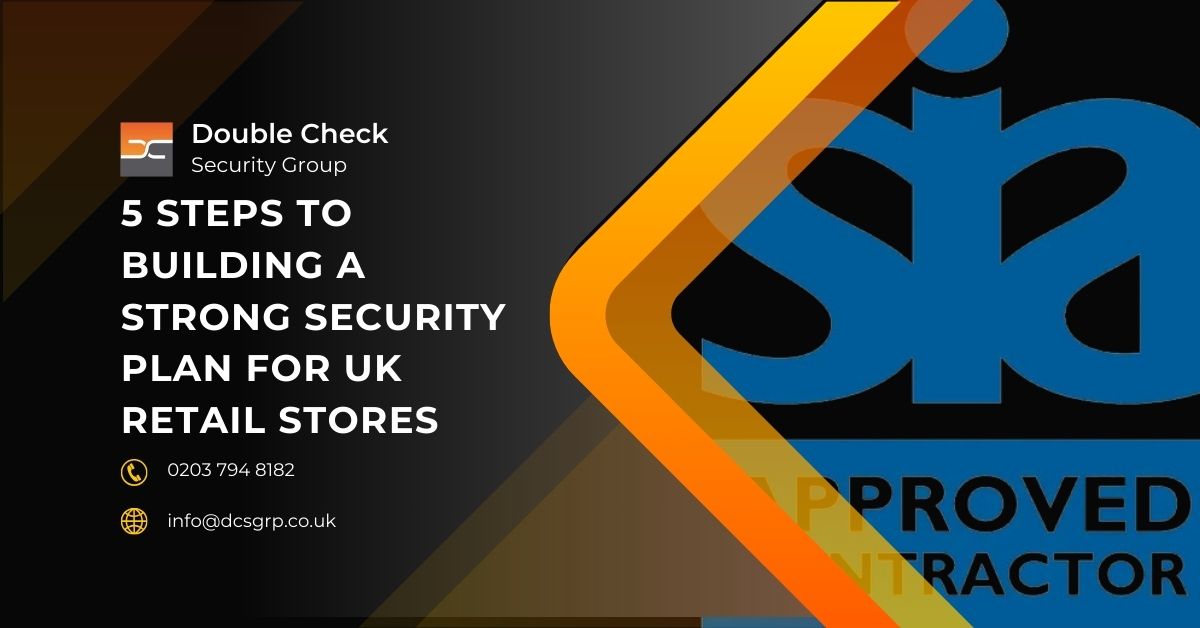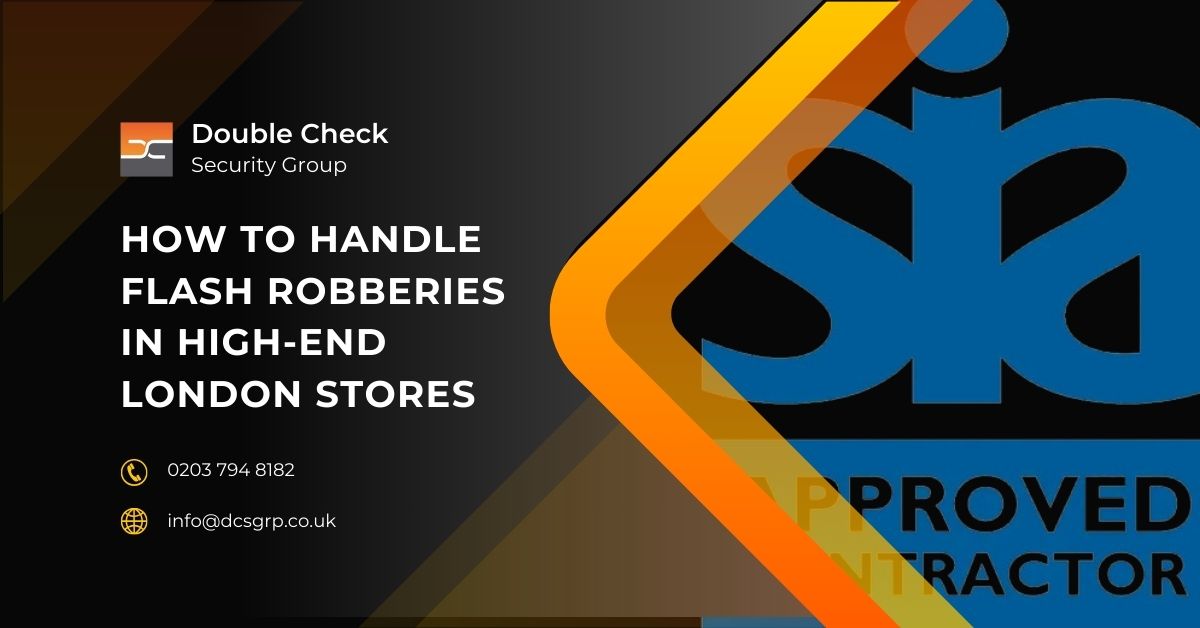Is Hiring a Retail Security Guard Worth It in the UK? A ROI Breakdown
Hiring a retail security guard in the UK can seem like a big cost decision. But when you factor in the ongoing increase in shoplifting incidents, aggressive behaviour in stores, and stock loss, the return on investment becomes easier to measure. Smart retailers are asking one clear question: does hiring a guard actually save more than it costs? The short answer is yes, when you approach it with a clear goal and the right tracking in place. This article outlines the actual return UK retailers are getting from guards, how much it costs, and how different store types are making it work.
Why Does ROI Matter Before You Hire a Guard?
Before committing budget to any form of retail security, it helps to ask what return you should expect. In financial terms, ROI or return on investment, refers to the measurable gains compared to the amount spent.
In the UK retail sector, ROI from a security guard typically focuses on reduced shrinkage, fewer incidents, improved staff wellbeing, and better customer experience. If a store spends £32,000 annually on a guard and avoids £60,000 in losses, the return is both clear and measurable.
How ROI Shows You’re Spending Smart
Security budgets can quietly increase without anyone checking if they’re working. By measuring return, retailers ensure that every pound spent leads to a real-world improvement. This includes comparing pre and post guard hire data such as theft prevention logs, reductions in employee sick days, or higher basket size.
Pro Tip : Always align guard deployment with local crime heatmaps. Coverage matched to high-risk hours improves ROI significantly.
Struggling With Retail Theft?
Our experts help UK stores stop loss at the door with people-plus-tech security solutions.
What is Retail Theft Costing UK Stores in 2025?
The total value lost to retail crime in the UK reached £2.2 billion in 2024, according to the British Retail Consortium. This figure is increasing in 2025. Shoplifting is becoming more coordinated and aggressive, with repeat offenders and gangs targeting convenience stores, supermarkets, and high-value retail outlets.
Real Cost Examples in Daily Trading
For a convenience store earning £5,000 daily, a shrinkage rate of just one percent results in over £18,000 in annual losses. Larger retailers face even greater exposure, particularly those in urban high-footfall locations.
These losses compound through higher insurance premiums, supply chain disruptions, and additional staffing needs to manage incidents.
Why Staff and Customers Are Affected
Retail theft affects staff wellbeing, customer sentiment, and brand perception. Unsafe or tense environments cause staff stress, increase turnover, and reduce time spent on service. For customers, stores with regular disturbances feel less inviting, which impacts dwell time and loyalty.
What ROI Are Retailers Actually Getting From Guards?
Retailers across the UK are reporting positive ROI when they integrate SIA licensed guards into a broader retail loss prevention strategy.
Co-op and the Fortress Store Model
Co-op introduced its fortress store strategy using trained guards, body worn cameras, and data-led deployment. This initiative reduced theft by 35 percent and helped staff feel more confident. The use of integrated analytics and visual deterrents also improved reporting accuracy.
Smaller Stores Also Benefit
A retail clothing boutique in Central London previously lost up to £2,000 per month due to theft. After introducing a part-time guard during key hours, their monthly losses dropped by over 60 percent. Store traffic remained steady while sales per visit increased.
What Does a Retail Security Guard Cost in the UK?
To judge if a guard offers value, understanding cost structure is essential. Total spend includes wages, training, and operational overheads. You can read our article on how much does a security guard cost in the UK to help you more accurately gauge the return in investment.
Should You Hire In House or Use an Agency?
In-house guards provide consistency, while agencies offer flexibility, coverage and reduce HR burden. Choice depends on store count, local risk levels, and operational bandwidth.
For more details, check our resource on third-party security vs direct hires.
Pro Tip : Use EPOS-linked shrinkage data to track theft reductions before and after hiring a guard. This is key for proving return on spend.
Need Help Reducing Shrinkage Fast?
See how we help UK retailers build high-ROI security plans that work from day one.
What Are the Real Benefits of Hiring a Guard?
Retail security guards provide immediate benefits and ongoing value. They play a frontline role in protecting stock, staff and customer experience.
Direct Benefits
-
Theft intervention and real-time incident management
-
Asset protection and accurate evidence collection
-
Faster conflict resolution and incident de-escalation
Long-Term Improvements
-
Staff report fewer stress-related absences
-
Shoppers feel more secure and spend more time in store
-
Guards assist with store flow, queuing, and wayfinding
Is Technology Enough or Do You Still Need People?
Surveillance systems support security strategy but cannot replace trained personnel. AI helps monitor behaviour, but human intervention remains necessary to act on real-time threats.
Smart Security Tools in 2025
-
Shopformer AI offers behavioural detection of theft risk
-
Surveillance pods cover large external or unstaffed areas
-
HD CCTV provides high-quality footage for prosecution
Best Results Come from a Mixed Approach
Retailers combining trained guards with integrated technology achieve faster incident resolution and better prevention outcomes. Co-op’s use of both tools led to significant shrinkage control.
How Do You Calculate Retail Guard ROI?
The calculation for security ROI involves comparing loss reduction against total guard costs.
ROI = (Losses prevented – Cost of guard) ÷ Cost of guard × 100
What to Include in Your Calculation
-
Pre and post shrinkage rates using EPOS or audit data
-
Number of reported incidents and resolved cases
-
Staff absence due to conflict or theft events
-
Revenue lift during guarded periods
What Mistakes Lower the ROI From Security Guards?
Poor planning and lack of accountability can reduce the return from your guard spend.
Common Pitfalls
-
Hiring guards without clear store protocols
-
No KPIs or tracking of intervention success
-
Leaving guards underutilised during quiet periods
How Can You Boost the ROI From Security Guards?
A few changes can significantly improve outcomes and cost-effectiveness.
Proven Strategies
-
Align security hours with risk patterns using crime heatmaps
-
Adjust coverage based on peak shrinkage periods
-
Participate in offender data networks like SentrySIS or Facewatch
-
Train guards in customer interaction and de-escalation techniques
Does Store Type Affect the ROI of a Guard?
Yes, store layout, product type, and location all influence security effectiveness.
ROI by Store Format
-
Small stores with high-value goods see faster impact
-
High-volume supermarkets benefit from blended tech and guards
-
City centre shops require visual deterrents to manage repeat offenders
What Helps You Get the Most Out of Hiring a Guard?
Getting the best from your security spend depends on setup, management, and integration.
Practical Tips
-
Align guard schedules with footfall and risk data
-
Track guard-led outcomes and link to loss reports
-
Use a dashboard for continuous ROI monitoring
Is Hiring a Retail Guard in the UK Worth It?
To decide if a guard is a worthwhile investment:
-
Measure existing shrinkage and associated costs
-
Compare full lifecycle cost of in-house vs outsourced guards
-
Evaluate incident response speed and staff wellbeing before and after
-
Combine guard presence with integrated surveillance


